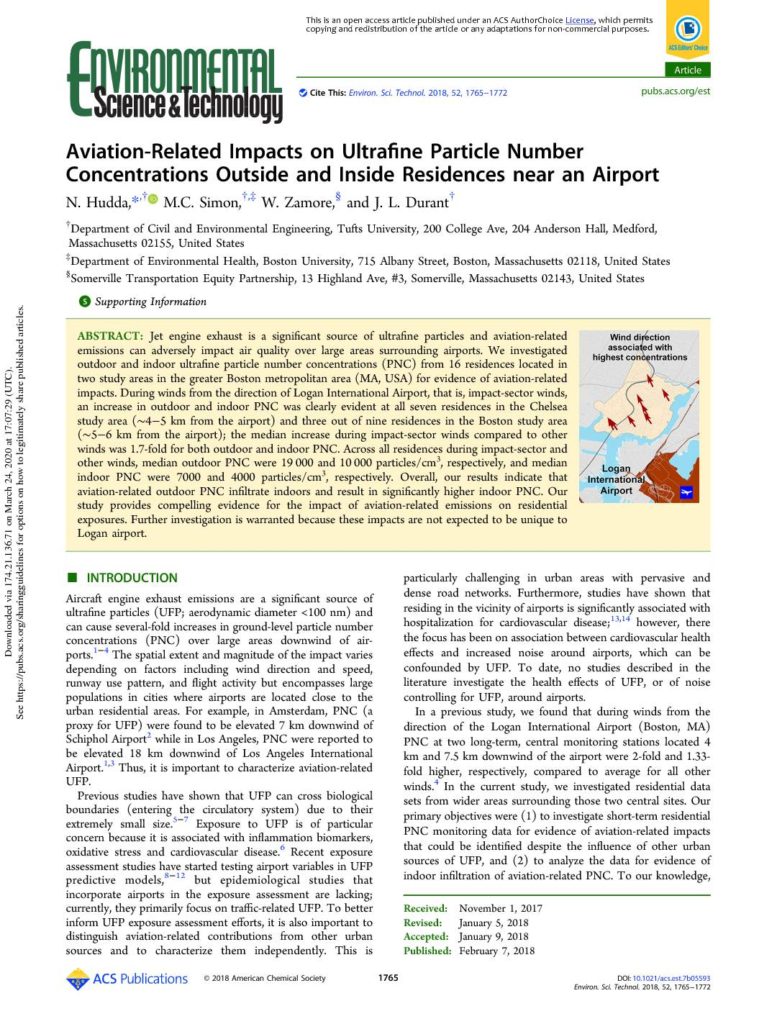Notes:
Jet engine exhaust is a significant source of ultrafine particles and aviation-related emissions can adversely impact air quality over large areas surrounding airports. We investigated outdoor and indoor ultrafine particle number concentrations (PNC) from 16 residences located in two study areas in the greater Boston metropolitan area (MA, USA) for evidence of aviation-related impacts. During winds from the direction of Logan International Airport, that is, impact-sector winds, an increase in outdoor and indoor PNC was clearly evident at all seven residences in the Chelsea study area (∼4−5 km from the airport) and three out of nine residences in the Boston study area (∼5−6 km from the airport); the median increase during impact-sector winds compared to other winds was 1.7-fold for both outdoor and indoor PNC. Across all residences during impact-sector and other winds, median outdoor PNC were 19 000 and 10 000 particles/cm3, respectively, and median indoor PNC were 7000 and 4000 particles/cm3, respectively. Overall, our results indicate that aviation-related outdoor PNC infiltrate indoors and result in significantly higher indoor PNC. Our study provides compelling evidence for the impact of aviation-related emissions on residential exposures. Further investigation is warranted because these impacts are not expected to be unique to Logan airport.
